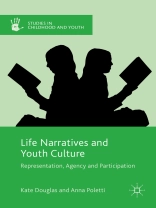This book considers the largely under-recognised contribution that young writers have made to life writing genres such as memoir, letter writing and diaries, as well as their innovative use of independent and social media. The authors argue that these contributions have been historically silenced, subsumed within other literary genres, culturally marginalised or co-opted for political ends. Furthermore, the book considers how life narrative is an important means for youth agency and cultural participation. By engaging in private and public modes of self-representation, young people have contested public discourses around the representation of youth, including media, health and welfare, and legal discourses, and found means for re-engaging and re-appropriating self-images and representations. Locating their research within broader theoretical debates from childhood and youth studies: youth creative practice and associated cultural implications; youth citizenship and autonomy; the rightsof the child; generations and power relationships, Poletti and Douglas also position their inquiry within life narrative scholarship and wider discussions of self-representation from the margins, representations of conflict and trauma, and theories of ethical scholarship.
Table of Content
Part I: Young Writers and Life Narrative Encounters.- Introduction. Youth and Life Writing: Three Forms.- 1. Youth and Revolutionary Romanticism: Young Writers Within and Beyond the Literary Field.- Part II: Writing War.- 2. War Diaries: Representation, Narration, and Mediation.- 3. Lost Boys: Child Soldier Memoirs and the Ethics of Reading.- Part III: Girlhoods Interrupted.- 4. The Riot Grrrl Epistolarium.- 5. Impossible Subjects: Addiction and Redemption in Memoirs of Girlhood.- Part IV: Youth publics.- 6. Zine Culture: A Youth Intimate Public.- 7. Youth Activism Online: Publics, Practices, Archives.- Conclusion: Youth, agency and self-representation: What cultural work can life writing do?
About the author
Anna Poletti is Associate Professor in English at Utrecht University, Netherlands and a Senior Research Fellow at Monash University, Australia.
Kate Douglas is Associate Professor in the School of Humanities and Creative Arts at Flinders University, Australia.











